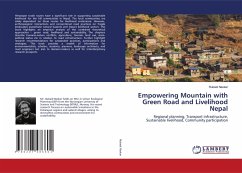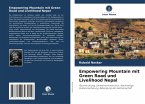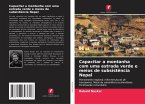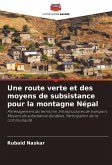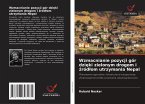Himalayan trade routes have a significant role in supporting sustainable livelihood for the hill communities in Nepal. The local communities are solely dependent on these routes for livelihood sustenance. However, anthropogenic interactions and conventional road practices on fragile landscapes exacerbate natural hazards and impact livelihood sectors. This book highlights an empirical analysis of the combined theoretical approaches - green road, livelihood and sustainability. The chapters describe humane-nature conflicts, agriculture, tourism, land use, socio-political status etc in relation to road infrastructure. Further highlight research recommendations for sustainable practices, participations and strategies. This book provides a wealth of information for environmentalists, scholars, students, planners, landscape architects, and road engineers but also to decision-makers as well for interdisciplinary research prospects.
Bitte wählen Sie Ihr Anliegen aus.
Rechnungen
Retourenschein anfordern
Bestellstatus
Storno

